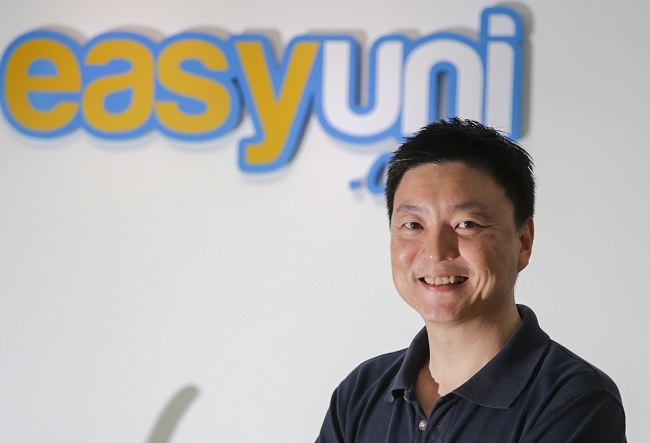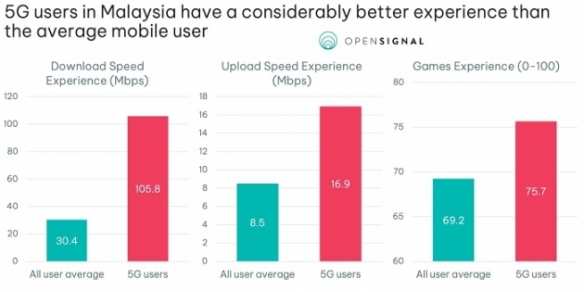Digerati50: The double-edged sword of valuation
By Karamjit Singh July 29, 2016
Digital News Asia (DNA) continues its weekly series that profiles the top 50 influencers, movers and shakers who are helping shape Malaysia’s Digital Economy, from Digerati50 Vol 2, a special print publication released in February 2016. To download a special e-reader version, see the top of this page. For information on customised reprints of Digerati50, email [email protected].
- Edwin Tay applies key lessons from his first startup
- Role of mentors ‘super critical’ with chance of ‘aha moments’

DREAMING of rapid growth and traction with some fast funding? Well, be prepared for a rude awakening if you ever have a conversation with Edwin Tay, cofounder and chief executive officer of EasyUni Sdn Bhd.
His five-year-plus startup is aiming to be the dominant online student placement company in the world, having raised its Series B in October 2015 from Axiata Digital Innovation Fund. The amount was not officially disclosed, but the buzz is that it was in the high single-digit million-ringgit range.
Its Series A of RM1.3 million was raised in early 2013, but it has also received RM800,000 in grants –RM150,000 and RM500,000 on two separate occasions from Cradle Fund Sdn Bhd, an agency of Malaysia’s Ministry of Finance, and another RM150,000 from national ICT custodian Multimedia Development Corporation. [RM1 = US$0.24 at current rates]
The Series B investment came two years after Tay began the process and six months after he made the painful decision to walk away from an offer “because of certain clauses in the shareholder’s agreement,” he says.
What followed was a period of extra stress as he had to start the process all over again.
“With expectations high that we would be raising the funds we needed to grow aggressively, it was tough for everyone when we had to hunker down and depend on revenue,” Tay recalls.
Not that revenue was bad. On the contrary, with monthly earnings in excess of RM300,000, the company, launched in December 2011, was profitable. But it did not have the cash flow to supercharge its growth.
As of January 2016, EasyUni was in Singapore, Indonesia, Malaysia, Australia and China and is considered one of the online leaders in providing university placement services for students.
For Tay, there were some key takeaways from the experience.
“For entrepreneurs out there, recognise that valuation is not everything. It could be worth opting for a lower valuation and getting more friendly clauses in the shareholder’s agreement,” he advises.
While it is natural for entrepreneurs to fight hard for the valuation they want, Tay observes that venture capitalists can always put in clauses in the shareholder’s agreements that protect them.
“Those crazy clauses can be an unnecessary pressure point on you,” he cautions.
Meanwhile, the experience also validated a lesson Tay learnt in 2000 from his first startup, Netinfinium Sdn Bhd, which he sold in 2011 to listed company N2N Bhd.
And that lesson is: Don’t have too many founders and only bring in angels you know and are comfortable with.
There were four founders in Netinfinium, an email marketing and web solutions company, with one angel investor.
EasyUni has two founders and although it has five angel investors, Tay’s decision to bring in angels he knew and was comfortable with paid off when his funding deal didn’t work out.
“Though disappointed as well, they were really supportive and understanding, and did not put more pressure on an already pressured entrepreneur,” says a grateful Tay who unabashedly adds, “We love our angels!”
Besides the importance of picking the right angels, even with his 12 years of experience behind him, Tay actively sought out mentors.
“I think that is super-critical for all entrepreneurs. While you already know a lot, there is also a lot more you do not know and mentors can help fill those gaps,” he says.
And, if you are fortunate enough, entrepreneurs could be blessed with that ‘aha moment,’ as Tay describes it.
His own such moment came courtesy of Catcha Group cofounder Ken Tsurumaru.
“He liked what EasyUni was doing and became my mentor. Through our interactions, as I was trying to crack the business model for EasyUni, his insight and experience in building the various startups under the Catcha Group really helped me nail our business model,” says Tay.
Beyond that special ‘aha moment,’ mentors also will tell entrepreneurs things they already know, “but you need to hear that from somebody you respect,” he adds.


